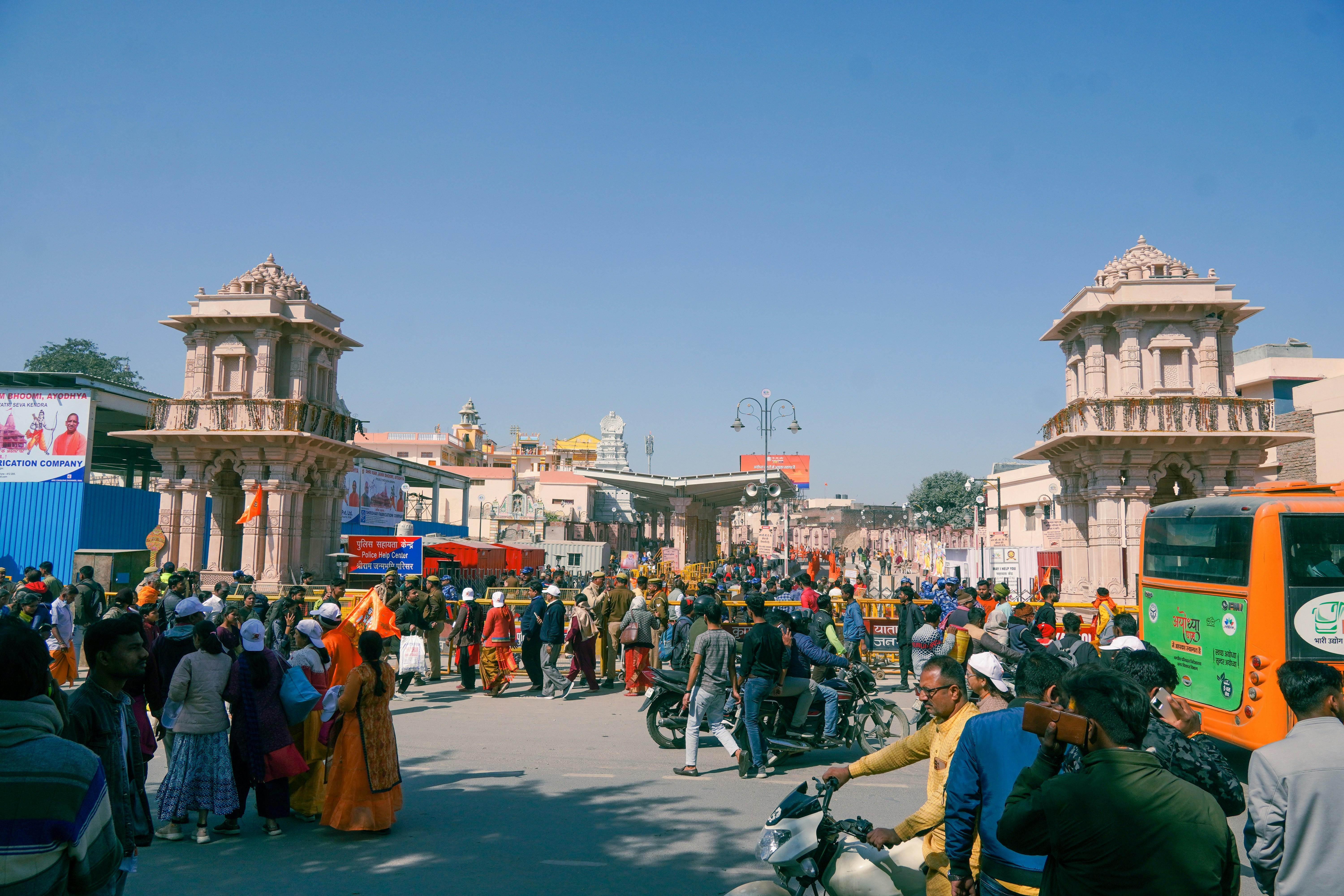Ayodhya, the sacred city on the banks of the Sarayu River, is a timeless destination that draws pilgrims, history lovers, and cultural travelers alike. The best time to visit Ayodhya depends on what you seek—whether it’s spiritual immersion, festive celebrations, or peaceful exploration. With its deep mythological roots and growing prominence as a religious and heritage hub, Ayodhya offers a rich experience throughout the year, but certain seasons elevate its charm.
🗓️ Seasonal Overview: When Ayodhya Shines Brightest
Ayodhya experiences three distinct seasons—summer, monsoon, and winter. Each has its own appeal, but winter stands out as the most favorable for tourism.
🌤️ Winter (October to March): The Ideal Season
-
Temperature: Ranges from 8°C to 25°C
-
Weather: Pleasant, cool, and comfortable
-
Why Visit:
-
Ideal for temple visits and walking tours
-
Clear skies and crisp air enhance sightseeing
-
Major festivals like Diwali and Ram Navami fall in this window
-
Winter is considered the best time to visit Ayodhya. The city comes alive with devotional fervor, especially during Ram Navami, which celebrates the birth of Lord Rama. The ghats of the Sarayu River are serene, and the evenings are perfect for attending aarti ceremonies or strolling through heritage lanes.
☀️ Summer (April to June): For the Devoted and Determined
-
Temperature: Can soar up to 45°C
-
Weather: Hot and dry
-
Why Visit:
-
Fewer crowds at popular sites
-
Ram Navami (usually in April) is celebrated with grandeur
-
While summer is not the most comfortable time to explore Ayodhya, it does offer a quieter experience for those who prefer less tourist traffic. If you plan to visit during Ram Navami, be prepared for large gatherings and high temperatures—early mornings and late evenings are best for sightseeing.
🌧️ Monsoon (July to September): Lush but Limited
-
Temperature: Between 25°C and 35°C
-
Weather: Humid with moderate to heavy rainfall
-
Why Visit:
-
Verdant surroundings and refreshed landscapes
-
Peaceful ambiance with fewer tourists
-
Monsoon transforms Ayodhya into a lush green haven, especially around the Sarayu River and temple gardens. However, travel plans can be disrupted by rain, and outdoor activities may be limited. If you enjoy quiet reflection and don’t mind occasional showers, this season can be surprisingly rewarding.
🎉 Festival Highlights: When Culture Meets Devotion
Ayodhya’s spiritual calendar is packed with festivals that offer immersive cultural experiences. Timing your visit around these events can add depth and excitement to your journey.
🪔 Diwali (October/November)
-
Celebrated as the homecoming of Lord Rama after defeating Ravana
-
The entire city is illuminated with diyas, creating a magical atmosphere
-
Ram Ki Paidi hosts grand aarti and light shows
🎂 Ram Navami (March/April)
-
Marks the birth of Lord Rama
-
Processions, bhajans, and temple rituals fill the city with energy
-
A great time to witness Ayodhya’s devotional spirit
🕉️ Makar Sankranti (January)
-
Pilgrims take holy dips in the Sarayu River
-
Local fairs and cultural programs are organized
🧘 International Yoga Day (June 21)
-
Ayodhya hosts yoga sessions and wellness retreats
-
A peaceful time for spiritual seekers
🧳 Travel Tips Based on Season
To make the most of your visit, here are some seasonal travel tips:
Winter Travel Tips
-
Carry light woolens for chilly mornings and evenings
-
Book accommodations early during festival periods
-
Enjoy walking tours and riverside activities
Summer Travel Tips
-
Stay hydrated and wear breathable clothing
-
Plan temple visits during cooler hours
-
Use sunscreen and carry an umbrella for shade
Monsoon Travel Tips
-
Pack waterproof gear and quick-dry clothes
-
Check weather forecasts before outdoor plans
-
Enjoy indoor attractions like museums and cultural centers
🏨 Accommodation and Crowd Levels
-
Winter: High demand, especially during festivals—book early
-
Summer: Easier availability, lower prices
-
Monsoon: Moderate demand, peaceful stays
Ayodhya offers a range of accommodations—from budget lodges and dharamshalas to boutique hotels and spiritual retreats. Booking in advance is recommended during peak seasons.
🚗 Getting There
Ayodhya is well-connected by road, rail, and air:
-
By Air: Maharishi Valmiki International Airport (under development) and nearby airports in Lucknow and Gorakhpur
-
By Train: Ayodhya Junction and Faizabad Station connect to major cities
-
By Road: Accessible via national highways from Lucknow, Varanasi, and Prayagraj
Winter months offer the smoothest travel experience, with minimal weather-related disruptions.
🌄 Final Thoughts
The best time to visit Ayodhya depends on your travel goals—whether it’s attending a grand festival, enjoying peaceful reflection, or exploring heritage sites. Winter stands out as the most comfortable and culturally vibrant season, but every time of year offers its own unique charm. With its spiritual energy, historical depth, and evolving infrastructure, Ayodhya is ready to welcome you whenever you choose to arrive.
So, whether you're planning a pilgrimage, a cultural escape, or a soul-soothing retreat, Ayodhya awaits with open arms and timeless stories.



